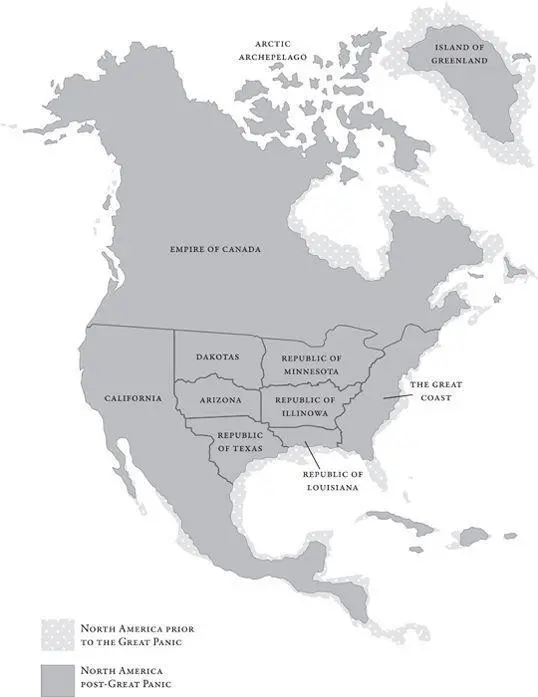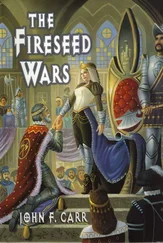Cameron Stracher
The Water Wars
For Simon and Lulu

The year before he joined the Reclamation, when he was still seventeen, my brother Will set a new high score at the YouToo! booth at the gaming center. It was a record that stood for many years, and there were plenty of people who thought it would never be broken, although eventually it was. But by then my brother didn’t care; he had found more important things to do than waste his time playing games in which winning only meant you had to play again.
We lived then in a time of drought and war. The great empires had fallen and been divided. The land was parched and starved for moisture, and the men who lived on it fought for every drop. Outside, the wind howled like something wounded. Inside, our skin flaked, and our eyes stung and burned. Our tongues were like thick snakes asleep in dark graves.
That’s why I’ll never forget the first time I saw Kai. He was standing in the open road drinking a glass of water like it didn’t matter—water from an old plastene cup. There could have been anything in that cup: bacteria or a virus or any of the other poisons they taught about at school. Men had dug so deep for water that salt had leached into the wells, and unnamed diseases lived in what remained. But Kai didn’t seem to care. He drank his water like it was the simplest thing in the world. I knew it was water because when he was finished, he did something extraordinary: he flipped the cup upside down and spilled the last remaining drops into the dust.
“Hey!” I called out to him. “You can’t do that!”
He looked at me like he didn’t know I was the only other person on the deserted road. He was about the same age as Will. Both had that lanky boy body I had just begun to recognize: hip bones and wrists, flat bellies and torsos. But while Will and I were dark-haired and lean, Kai was blond, with skin that glowed in the morning sun. I felt an urge to run my fingertips over his smooth forearms, feel the strange softness against my ragged nails that I never let grow long enough to paint like other girls did.
“Who says I can’t?” he asked.
Wasting water was illegal. There were fines, and even prison sentences, for exceeding the quotas. But this boy looked like he didn’t care about any of that.
“You just can’t,” I said.
“That’s something a shaker would say.”
“Because it’s true.”
“How do you know?”
“I know—that’s all. Look around. Do you see any water here?”
“There’s plenty of water,” said the boy.
“Yeah, in the ocean.”
“Can’t drink salt water,” he said, as if I didn’t know.
I looked down the dusty road. Not a sign of life anywhere—just the hills, scarred from ancient fires, and sand blowing around the empty lot where I waited. Not even a lizard or an insect moved. Once there had been a row of stores at the edge of the lot, but now all that remained were the skeletons that scavengers hadn’t sold for scrap. Torn insulation and loose wire dangled like innards from pitted aluminum struts. When the wind blew, they made a sound like mourning.
“Why don’t you have your screen, anyway?” A new student should at least bring a notebook to his first day, I thought.
“I don’t go to school.”
“Are you a harvester?”
“My father says I don’t have to go to school.”
Everyone went to school, except for water harvesters’ kids who chased the clouds across the sky. At least until you were eighteen—then you got jobs, or joined the army, or worked for the Water Authority Board, which was like staying in school for life.
“You’re lucky,” I said.
“School’s not so bad.”
I liked school, although I wouldn’t admit it. I loved learning the details about shiny rocks, their hard, encrusted surfaces yielding clues about the minerals inside. I loved our field trips to the dams, where metal wheels as large as entire houses turned slowly in their silicon beds. Best of all, I loved deciphering the swirling purple patterns of thunderstorms and hurricanes, trying to predict where, on the brown-gray prairie, they would strike next.
“Did they take you out?” I asked.
He shrugged. “Didn’t need to go anymore.”
I peered down the road again. The bus was late. It was often late. Sometimes it didn’t come at all, and I had to walk back to my building, where my father would unplug the old car and drive me to the school in town. Will was already there, a full hour earlier, because he had to empty the basins before the sun evaporated the small amount of water that collected as dew. Last year two other girls rode the bus with me, but one day they stopped coming and never returned. It was boring waiting alone. I welcomed the distraction.
“I’ve got a brother,” I said. “He passed his army physical.”
“Easy.”
“He had to do fifty pushups.”
“I can do a hundred.”
The boy kneeled like he was going to start exercising right there in the dust. The place where he had spilled his cup was completely dry; I couldn’t even tell it had been wet. I could see the elastic band of his underwear and the smooth skin where his back was exposed. No marks, scratches, or scabs of any kind. My own hands looked like some kind of treasure map, except the lines didn’t lead to riches.
“I’m Vera,” I said to his back.
“Kai,” he said, standing up.
“Where did you get the water?”
“I’ve got lots of water.”
“Are you rich?”
“I guess so.”
“Should you be out alone?”
“Ha!” he snorted. “I’d like to see them try something.”
It wasn’t clear whom he was talking about, but I didn’t think Kai—or any boy—could stand up well to the bandits and soldiers who menaced our town, no matter how many pushups he could do.
“Are you waiting for someone?” I asked.
“Going to a scavenge site. Want to come?”
“I’ve got school.”
“After school?”
I said I would try, but I knew my father wouldn’t let me. He didn’t want me going anywhere after school—not with this boy, not with any boy. It was dangerous to hang around strangers. Just last year there had been a virus, and three kids in our class had died. No one went to school for two weeks afterward, and Will and I played cards in his bedroom until we got so bored that we wanted to scream.
“We live in the Wellington Pavilion,” Kai said, naming a fancy housing complex. “Meet me there this afternoon. I’ll tell the guards.”
“I have water team.”
“After water team, then.”
“I’ll ask my dad.” Down the road I could see the telltale signs of rising dust. “There’s my bus.”
Kai looked to where I pointed, and his lips drew a tight line of disappointment. I realized then that he wasn’t out in the road spilling water because he had enough to drink. Like the girls who cut themselves or snuck their parents’ pharmies, he wanted someone to pay attention. I promised myself I would try to visit this boy, even though my father wouldn’t like it.
“Good-bye,” I said. “I’ll look for you later.”
“Later,” he said.
I boarded the bus and turned to wave, but as I did, I saw a car stop for the boy—a big, black limousine, gasoline-powered, with an engine that threw off heat in shimmering waves of silver. The door opened, and a burly guard with a machine pistol stepped into the road—mirrored glasses hid his eyes, and a thick cartridge belt cinched his waist. He signaled to Kai, and the boy climbed inside without looking back.
Читать дальше













